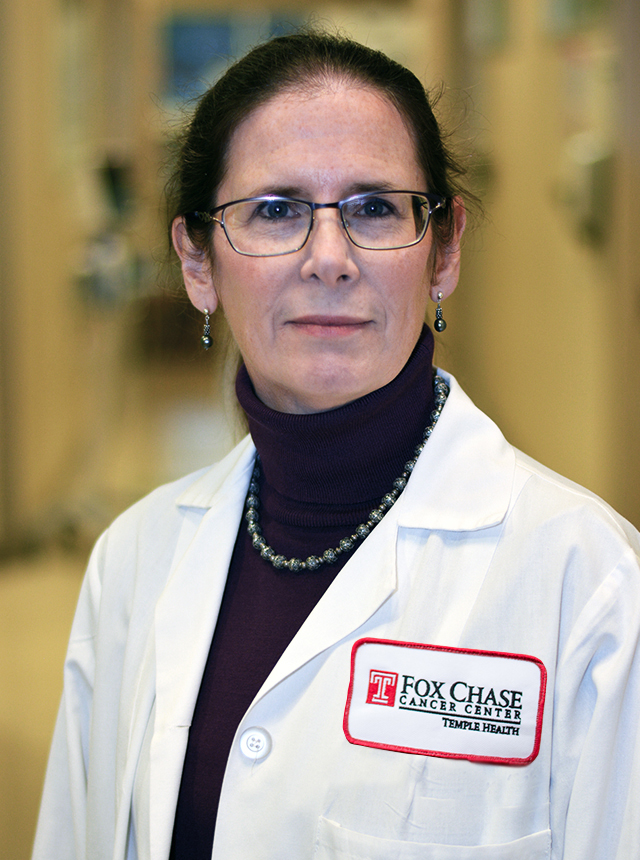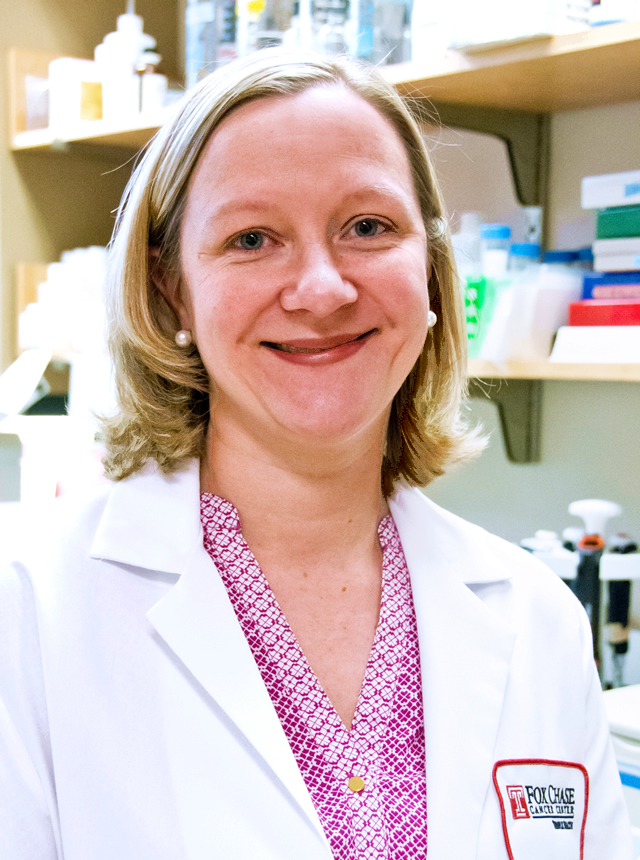
PHILADELPHIA (January 3, 2020) – Two Fox Chase Cancer Center researchers have been awarded a two-year $270,000 grant to continue their research into PDGFRA-mutated gastrointestinal stromal tumors (GIST). The grant was awarded to Margaret von Mehren, MD, chief of the Sarcoma Program, and Lori Rink, PhD, assistant professor in the Molecular Therapeutics Program.
Although the treatment of GIST has been revolutionized in recent years with the identification of activating genetic mutations in KIT and PDGFRA, and use of tyrosine kinase inhibitors such as imatinib, limited treatment options exist for patients whose tumors contain the rare imatinib-insensitive PDGFRA-D842V mutation.
“This is a subgroup of patients for which there is an unmet clinical need,” von Mehren said. “We have been studying a drug that will most likely be approved for these patients. But similar to many other drugs, patients will eventually develop resistance.”
Therefore, von Mehren and Rink are attempting to better understand PDGFRA-D842V mutated GIST in the hopes of developing better treatment options.

The new grant from The David Foundation will fund research looking into three areas. First, Rink and von Mehren are working to develop models of this rare tumor subtype.
“There are some GIST cell lines and PDX models established from other subtypes of GIST, but none from this subtype,” Rink said. “We want to develop these cell lines and patient-derived xenografts models.”
Secondly, they will look for new targets using tumor tissue from patients to perform kinome profiling. By doing this they hope to expand the possible therapeutic targets within the PDFGRA-D842V subtype of GIST.
“We are really digging into the kinome data and pulling out targets we think are going to be of interest,” Rink said. “Then we will use either commercially available inhibitors or work to develop new inhibitors to test these targets in GIST cell lines and animal models.”
Finally, von Mehren and Rink want to study new drugs being used to treat this disease in the clinic in order to look for mechanisms of resistance.